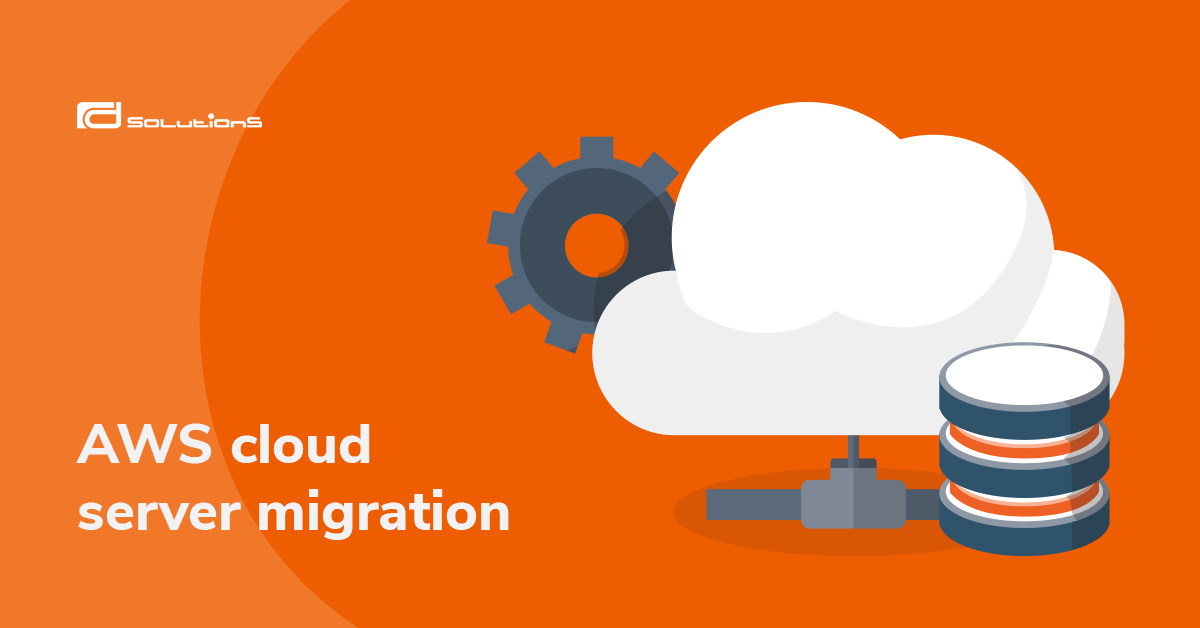Server migrations to the cloud are a natural step for businesses that run into the traditional problems of maintaining in-house servers.
The costs of buying or renting hardware, infrastructure, and office space can be way too large.
Possible disasters and the lack of uptime guarantees are also among the most common factors for moving away from in-house servers.Users demand everything right away, and the effects of server downtime can be fatal.
The overall lack of agility and scalability also isn’t compatible with most of today’s business models.
Migrating workloads to the cloud can be the solution for these problems.
That said, let’s see what options the AWS cloud offers in terms of server migration.
AWS Server Migration Service (AWS SMS)
AWS SMS is an agentless service that allows you to migrate local workloads to AWS through automation.
This service replicates current server VMs as cloud-hosted Amazon Machine Images (AMIs) for deployment in Amazon EC2. An AMI provides the information for launching an instance on AWS. In the case of server migration, AMIs allow easy tests and updates to cloud-based images before deployment.
AWS SMS is used for a variety of purposes, depending on individual needs. For example, multi-server migrations of a group of servers that constitutes an application can be performed with the help of the service. Users can schedule replications, track each stage of the process and configure replication intervals.
The service can also be used as a part of a company’s disaster recovery strategy, through periodically replicating VMs to the cloud.
Using AWS SMS offers several advantages:
Simplicity – you can start the migration process with just a few clicks in the AWS management console. AWS SMS automatically replicates live server volumes and creates AMIs from which EC2 instances can be launched.
Continuous testing – migrated services must be tested to determine possible problematic areas. With the SMS you can perform tests fast and save on network bandwidth since small tests can be done iteratively.
Minimal downtime – downtime and unavailability are also significant concerns for businesses. AWS SMS replication reduces the adverse effects of application downtime to a minimum and assures high availability.
Centralization and control – running multiple on-site servers can be extremely complicated, especially as a company expands. The AWS cloud provides the opportunity to centralize your infrastructure, which makes monitoring, testing and cloud spend planning much more straightforward.
Low prices – money is always a huge concern regardless of the scale of a migration. This is why AWS SMS is so popular. The use of the service is free. You only pay for storage resources used during the migration. There are a couple of instances that carry additional charges which you can learn about here. If you lack AWS expertise, you can always contact an AWS consulting partner to help you foresee or avoid such charges.
As with data and database migrations, you can perform server migration with the help of various AWS tools.
There are a couple of limitations at the account and VM levels when using AWS SMS. All accounts are limited to 50 concurrent VM migrations unless a customer explicitly requests more. Each account is also limited to 50 concurrent application migrations, with a limit of 10 groups and 50 servers in each application. On the other hand, each VM is limited to 90 days of service usage from the initial replication of the VM, and unless the customer requests an increase, AWS terminates each ongoing replication after 90 days.
Conclusion
The AWS cloud offers an opportunity to tackle some of the most common problems with running and maintaining in-house servers.
AWS SMS will provide a smooth transition experience, but it won’t mean much if you lack an overall vision of what you want the cloud to provide for your business.
Like all other transitions to the cloud, a successful server migration requires an analysis of your current internal processes, a solid strategy and continuous testing of each migrated element.
If you’re looking to migrate workloads or other parts of your IT portfolio to the cloud R&D Solutions can help you audit your current IT infrastructure and develop a detailed strategy for a successful move to the AWS cloud. You can learn more about how we help businesses take full advantage of the cloud’s capabilities here.

